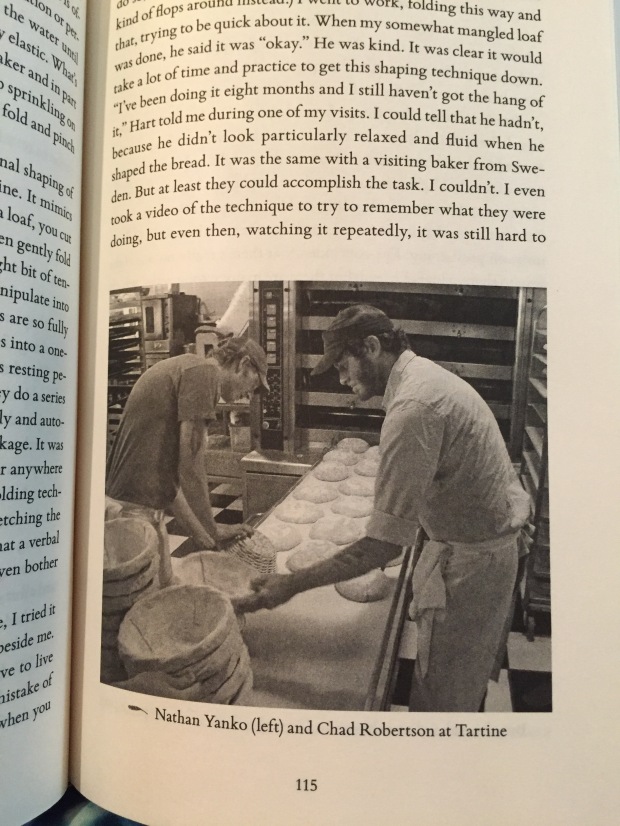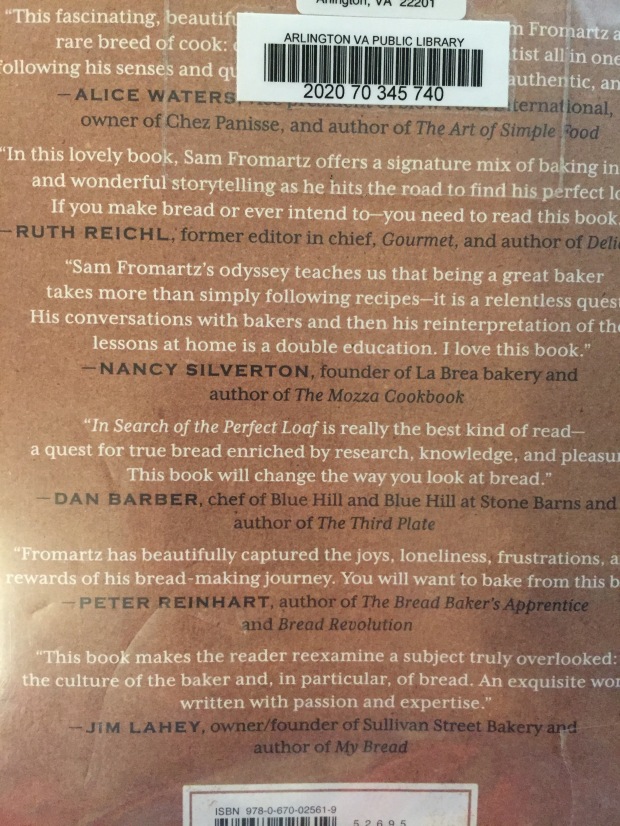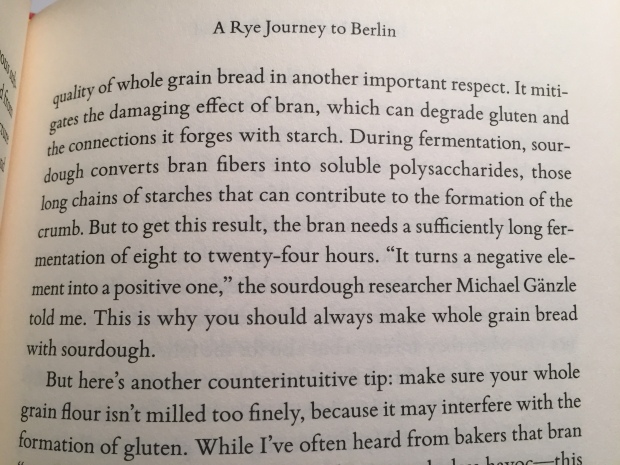
This is the second-to-last book I plan to review during this spate of book reviews. I’ve definitely hit a wall, and they are starting to run together so I’m not sure which book is which. That said, I thought Sam Fromartz’s book, In Search of the Perfect Loaf, was an entertaining and thought-provoking book. 
I’ve read so many bread and baking books that I thought I knew everything there was to know about bread, but this book surprised me with its in-depth treatments of the evolution of wheat flour and yeast. 
He’s also able to tap into a wealth of baking and culinary connections he cultivated as a journalist including Peter Reinhart, Chad Robertson, Dan Leader and Alice Waters. 
What is neat is that Fromartz seems to know all the big bakers personally.
Ok, the discussion of yeast in wasps’ bellies was pretty disgusting.

I also liked that the author’s travel destinations were unique. He starts in Paris and goes to San Francisco which are well-worn territory, but moves on to Germany, the US midwest, and even a grain farm in Maryland. 
I’m going to have to make this lemons, rosemary and olive oil bread soon.
Sorry people who have kept their sourdough alive for hundreds of years. It doesn’t make a difference.
Even when Fromartz visited Tartine bakery, his questions and observations were more probing and revelatory than other authors I’ve read. 
At his visit to Tartine Bakery, Fromartz documents a kneading technique that he says is so intricate he couldn’t even begin to describe it. He’s right; you need to see it to believe it (kneading is at 3:10 in this video: https://www.youtube.com/watch?v=cIIjV6s-0cA)
Unlike other similar books with authors who admittedly do not bake, it is clear Fromartz is an accomplished home baker. 
And once again, Peter Reinhart shows up to review a baking book! It seems to be a rite of passage.
Fromartz did a super deep-dive into the history of grains, which was fascinating but not the first time I’ve read about it. I do like each other’s take on the topic.
Ok, as someone who likes etymology, I was particularly fascinated by the roots of the word “flour,” which he discusses below.
The magic spell sourdough casts on rye and whole wheat breads is one I wish I had discovered earlier.
If someone had told me early on, “here’s a tip: if you ever make gummy bread, which can be quite common in whole grain baking, increase the amount of sourdough in the recipe” I wouldn’t have given up on rye bread so easily. I honestly just thought me and rye bread didn’t work well together.

I was excited to see when Fromartz visited an organic grain farm in Maryland. The CSA we had in Alexandria, VA gave us bags of Next Step Produce flour and wheat berries.
Finally, I loved how Fromartz categorized his baking book recommendations to new, experienced, and advanced baker levels.

I knew I said “finally” before, but this really touched my heart. He took some of the wheat kernels from a seed farm he visited in Germany and gave them to the grain farmer in Maryland to carry on the genetic diversity. How amazing is that!
This book has the same basic set-up as 52 Loaves by William Alexander, but the texts themselves could not be more different. William Alexander admits he did not begin his bread baking journey as a proficient baker. As such, he travels around but doesn’t really know the questions to ask. Michael Pollan has a similar problem when he visits Tartine Bakery. Because Fromartz is focusing his entire book on baking rather than just a chapter of a larger book, he can visit multiple bakeries of a similar size and see how they differ rather than comparing the Wonder Bread factory and Tartine as Pollan does.
I thought the excerpt below was a funny confluence of William Alexander and Sam Fromartz’s books. Alexander visits the Kneading Conference in Maine and attends the same session on building your own earth oven. Whereas Alexander complains about how much time it took to build, Fromartz actually built an earth oven during the conference and then builds one again on the beach. Pretty neat!
Is this book good for the beginning baker? I would say no. Beginning bakers should pick up 52 Loaves by William Alexander. I think more advanced bakers would appreciate this one more. When I found out he lives in DC, I thought I might convince him to do another baguette contest, this one with only home bakers!
